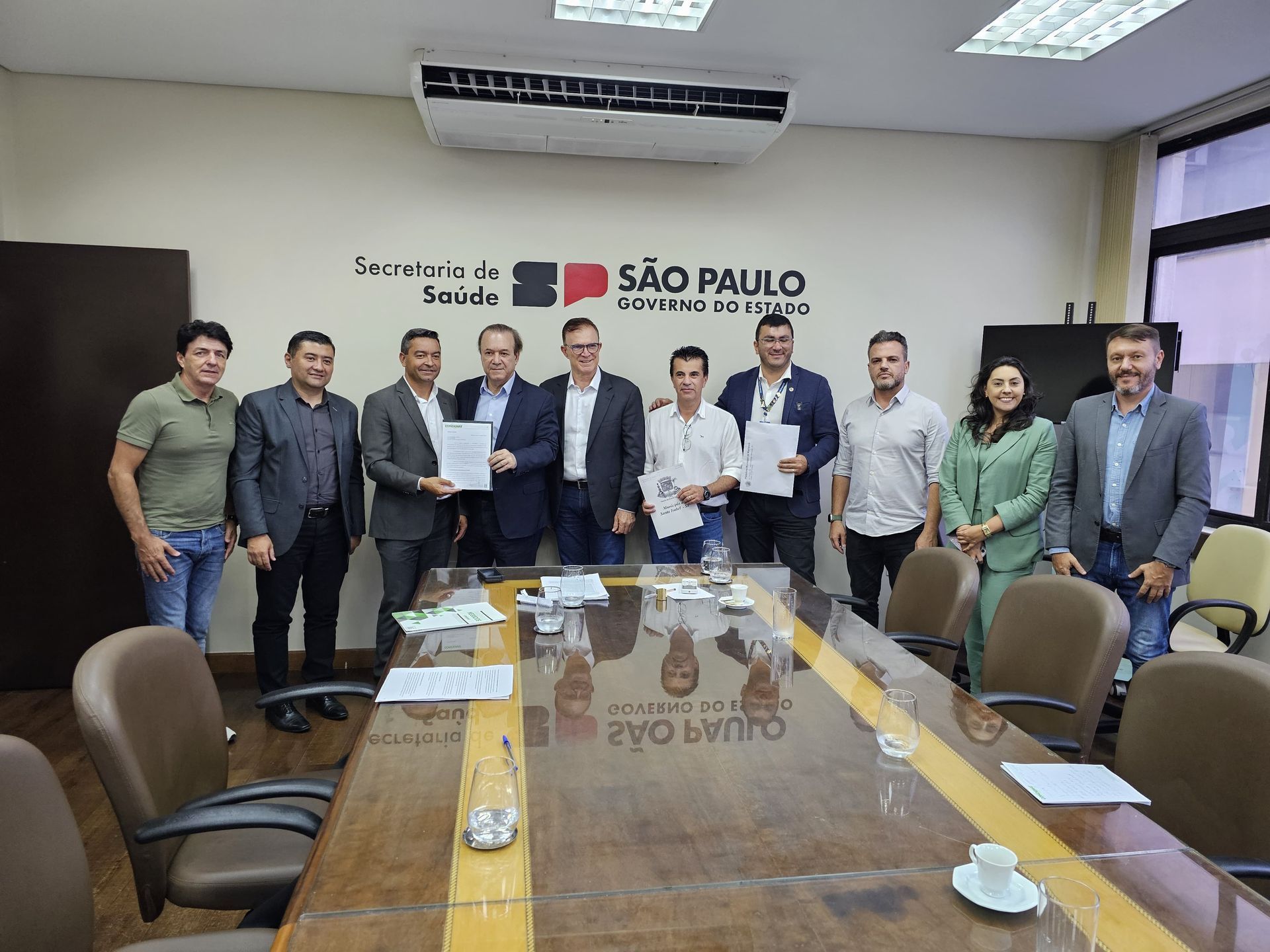Region mobilizes to demand improvements in health
CONDEMAT mayors demanded that the State Secretary of Health, Eleuses Paiva, resolve chronic demands in the region

The mayors of the Alto Tietê Municipal Development Consortium (CONDEMAT+) discussed and demanded alternatives for the region's health demands during a meeting with the State Secretary of Health, Eleuses Paiva, this Tuesday (16), in the Capital. The regionalization of health and the increase in care for chronic kidney patients marked the working meeting. The State's commitment is that a new meeting will be held this month to discuss the transfer of additional resources to the region, as well as the implementation of the hemodialysis service at the Alto Tietê Regional Hospital (HRAT), in Suzano, to initially serve 240 patients within the next few months. "We know that the demand, unfortunately, is high due to many previous commitments that were not honored and this is causing some serious problems for our population. “It is a desire of all mayors, especially because we are constantly being held accountable and are highly dependent on these actions by the State Government, to centralize and regionalize Cross (Central Regulatory Office for Health Service Offers), which is one of the most serious problems we face,” highlighted the president of CONDEMAT+, Vanderlon Gomes, mayor of Salesópolis. The regionalization of health is a long-standing demand of the consortium, which sees the measure as a way to optimize the existing structures in the region, in addition to promoting more agile, qualified and humanized care for patients. Under the current system, in many situations, residents are directed to other parts of the state, which generates costs for city governments with medical transportation, not to mention the inconvenience to patients. The state secretary explained that today Cross operates based on the number of available beds and demands, without looking at the data regionally, a situation that the State seeks to change by means of a survey with the municipalities to identify the number of specialized beds available. The study will allow for cross-referencing with existing demands and identifying gaps that require investment. The initial forecast was to return with the analysis of the scenario within 120 days, a deadline that was refuted by the mayors of CONDEMAT+, who will present the information from the region in the coming weeks. “We are gathering point by point what each municipality has, and we already have 40% of the data. With these offers plus the state’s, and knowing the region’s demand, I can provide services quickly,” explained the secretary. The president of the Legislative Assembly of São Paulo, state deputy André do Prado, reinforced that most of the services offered at the municipal level are primary care, hence the importance of the state’s support. “The municipalities offer practically nothing for medium and high complexity. Today, everyone is dependent on regional hospitals such as Luzia de Pinho Melo and Regional de Ferraz de Vasconcelos,” he pointed out. The issue of hemodialysis, a service that has a high demand in the region, will be reinforced by 40 new machines at HRAT. Although there is no deadline for the services to begin, the State stated that the work order for the renovation of the space that will receive the equipment has been given. When operations begin, 240 patients will be treated immediately, a number that could reach 320 people if there are four shifts of care. However, CONDEMAT+ called for faster solutions, such as a study to expand existing services. During the meeting, CONDEMAT+ called for the expansion of specialty consultations and exams, elective and emergency surgeries and procedures, as well as support to comply with Resolution No. 487/2023, which determines the gradual closure of Psychiatric Custody and Treatment Hospitals (HCTP) in Brazil by May 2024. The group also called for the regularization of the sending of medicines from the Dose Certa program by the State Government, as well as presenting emergency situations in each municipality.
The meeting was attended by the mayors of Arujá, Luís Camargo; of Biritiba Mirim, Carlos Alberto Taino Junior; of Ferraz de Vasconcelos, Priscila Gambale; of Itaquaquecetuba, Eduardo Boigues; of Mairiporã, Aladim; of Santa Isabel, Carlos Chinchilla; and of Suzano, Rodrigo Ashiuchi, in addition to the municipal secretaries of the consortium cities.








